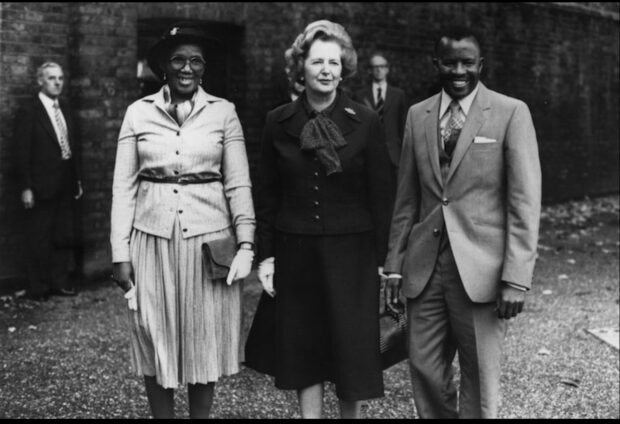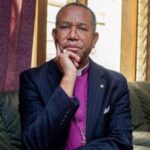Celebrating One of Africa’s Greatest Leaders: A Tribute to Sir Ketumile Quett Joni Masire – Part 1

Sir Ketumile Quett Joni Masire was born on 23 July 1925 in Kanye, Beuchanaland (now Botswana). 23 July, 2025, marks his centennial birthday. In commemorating this great milestone we pay tribute to one of the founders of Botswana and framers of its constitution. He was the principal architect of its economic development as minister of finance and development planning.
I recall at the end of March 1998, attending a farewell dinner for president Masire. The guest of honour was the former president of Tanzania, Julius Kambarange Nyerere. When it was time for the speeches president Nyerere spoke eloquently about Sir Ketumile’s leadership in developing Botswana. He praised him profusely for stepping down before senility set in and the guests dissolved in laughter. These two great president, paragons of astute and wise leadership in Africa, both left office voluntarily. Nyerere was first. Sometime in 1985, he woke up one bright sunny morning to the sound of birds singing and decided to retire. Not many presidents wake up that way! A year later the university of Zimbabwe awarded Nyerere an honorary doctorate, and the vice chancellor, professor Walter Kamba said at the ceremony: “In an age in which life presidencies are proliferating, whether by constitution or other means, it is only a man of courage, confidence, foresight, wisdom, and humility, like our graduate, who can say it is now time for me to lay down the burdens and responsibilities of state and go into retirement and become part of the citizenry.” Twelve years later, that man, was president Masire when he retired cutting short his presidency by two years. Concluding his retirement speech to Parliament he quoted Alfred, Lord Tennyson: “The old order changeth, yielding place to new, And God fulfils himself in many ways, Lest one good custom should corrupt the world.” He was steeped in English literature, Chaucer, Dickens, Austen, Tennyson, and Shakespeare, among many. I recall him often gleefully reciting from Shakespeare’s Macbeth: “Tomorrow and tomorrow and tomorrow. Creeps in this petty pace from day to day. To the last syllable of recorded time…”Masire was a wise, pious, and humble man, with a marvellous sense of humour; whose leadership stupendously transformed Botswana and overflowed to Africa and the world.
He was undoubtedly one of the greatest statesman of our era.
Richard Dowden the distinguished British journalist writing on the death of president Masire, described him as “…one of Africa’s greatest leaders. Because he was a low-key figure and from a large but sparsely-populated country, he does not appear in the pantheon of great rulers. But he should.” Dowden further said, “As president of Botswana for nearly two decades, the humble Masire was responsible for setting the country on a path to prosperity.” Masire’s humility concealed his greatness. I am reminded of Yogesh Chadha’s book ‘Rediscovering Gandhi’. In it, Chadha writes that when Mahatma Gandhi was in London in 1931 to plead for India’s independence, a small girl wanted to ask him for his autograph. She then drew back shyly and looked up at her mother and asked: ‘Mummy, is he really great?” Like Gandhi, the unassuming greatness of Masire was the gift of the common touch that made him at one with ordinary people. It was reflected in his love for Batswana – and humanity in general- a surpassing compassion and commitment to improving the welfare of others. He did so by being a skillful communicator. Experts of the Setswana language attest that his command of the language and idioms was incomparable. He marshalled the Setswana language wonderfully and spellbound his audience. He was brilliant. In 1944, the future president of Botswana, was one of the first students to earn a bursary to attend Tiger Kloof Secondary School. He became a teacher and the first headmaster of Kanye Secondary School – now Seepapitso Senior Secondary School – from 1950 to 1955. Though he put himself wholeheartedly into everything he did it was farming that was the love of his heart. In 1957, he was the first Motswana to be awarded a Master Farmer’s Certificate. His other interest was journalism and became nationally recognised as the local editor of the Naledi ya Batswana newspaper. It was as a journalist he later met Seretse Khama.
By the Rt. Rev’d. Dr. Musonda Trevor Selwyn Mwamba President of the United National Independence Party (UNIP), Zambia. (Formerly Bishop of Botswana)


